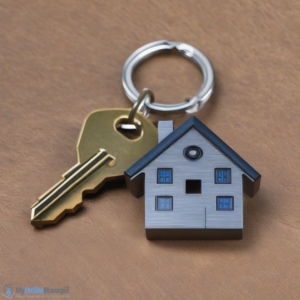Eugen Burger Management is seeking an experienced Resident Manager for a 37-unit, Project-Based Section 8 HUD property in Cotati, California. This is a full-time position (32 hours/week) with benefits and includes a 2-bedroom, 1-bath apartment as part of the compensation package. A part-time option with no benefits may be negotiated for the right candidate.
Ideal candidates will have 3–5 years of HUD property management experience and a proven ability to oversee daily operations, maintain harmonious resident relations, and ensure safe, sanitary housing for residents. Responsibilities include assisting the Property Supervisor in managing the physical assets and optimizing financial performance to meet ownership objectives.
Join a team dedicated to providing quality housing and building strong community relationships!
Click here for the link to the Indeed Job Page: https://www.indeed.com/viewjob?jk=83cf8105846399e7&from=shareddesktop
In today’s fluctuating real estate market, individuals face a crucial question: should they buy a home or continue renting? Recent market trends—including rising rent prices and declining mortgage rates—add layers of complexity to this decision. Let’s explore the factors shaping this choice and evaluate the advantages and drawbacks of each option.
Rent Prices Are Rising
Renters are feeling the pinch as rental prices continue to climb across the nation. Many metropolitan areas are experiencing significant increases, leaving tenants with fewer affordable options. For those who rent, the prospect of higher monthly payments and reduced disposable income can make homeownership seem like a more appealing alternative.
Mortgage Rates Are Dropping
At the same time, mortgage rates have shown a downward trend, making homeownership more attainable for prospective buyers. Lower rates reduce the overall cost of borrowing, potentially enabling buyers to purchase homes with more manageable monthly payments. This shift could make the case for buying a home stronger, especially for individuals with stable income and sufficient savings for a down payment.
Pros and Cons of Renting
Pros:
- Flexibility to relocate without long-term commitments.
- Lower upfront costs compared to buying.
- Freedom from property maintenance responsibilities.
Cons:
- Rising rents can strain budgets.
- No opportunity to build equity.
- Limited control over the property.
Pros and Cons of Buying
Pros:
- Builds equity over time, offering a potential financial asset.
- Fixed mortgage payments provide stability against rising housing costs.
- Greater freedom to customize and improve the property.
Cons:
- Significant upfront costs, including down payment and closing fees.
- Responsibility for maintenance and repairs.
- Potential financial risk if property values decline.
Factors to Consider
When deciding whether to buy or rent, personal circumstances and financial health are critical. Key considerations include:
- Financial Stability: Ensure you have a steady income, a good credit score, and adequate savings.
- Time Horizon: Buying is often more advantageous if you plan to stay in the same location for several years.
- Market Conditions: Research local real estate trends, including property values, rental rates, and mortgage availability.
- Lifestyle Preferences: Renting may be preferable for those who value flexibility, while buying suits individuals seeking long-term stability.
The Bottom Line
The decision to rent or buy hinges on personal priorities, financial readiness, and market dynamics. While rising rents and falling mortgage rates might push some toward homeownership, others may find renting more suitable due to its flexibility and lower upfront costs. Carefully weigh your options, conduct thorough research, and consult with a financial advisor to make an informed choice.
For more insights, visit the original article on Investopedia: Rent Prices Are Up and Mortgage Rates Are Down: Should You Buy?.

